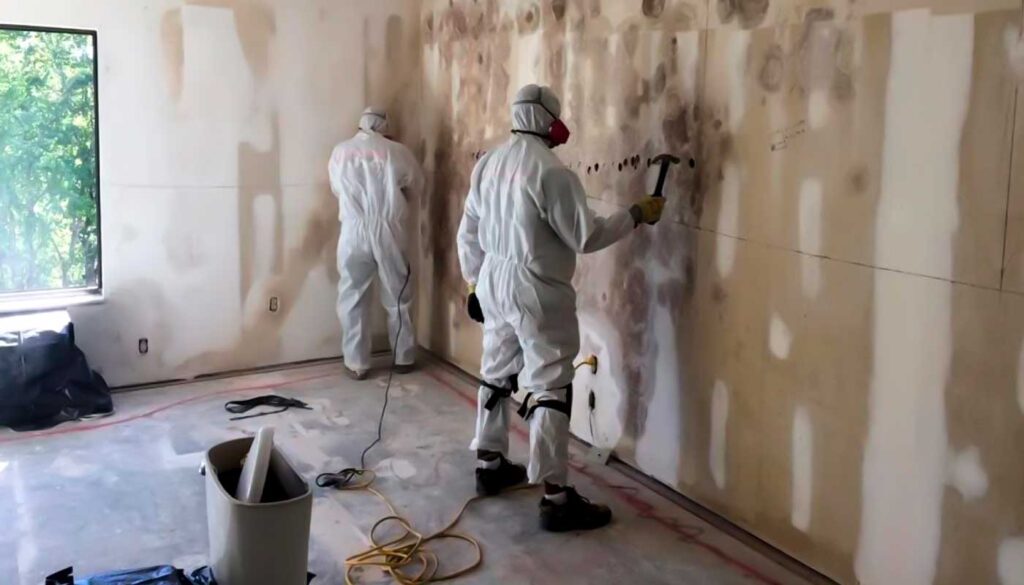Mold Damage
Mold Damage Restoration
Until help arrives
Do’s
Prioritize Safety:
Put your safety first. Avoid direct contact with mold and use protective gear like gloves and a mask when entering the affected area.Limit Air Movement:
Prevent mold spores from spreading by closing doors to the affected area and minimizing air circulation from fans and HVAC systems.Prevent Cross-Contamination:
If you need to enter the mold-affected area, use disposable shoe covers and ensure that mold doesn't transfer to other parts of your property.Dont’s
Don't Touch Mold:
Refrain from touching mold growth with your bare hands. Physical contact can release spores into the air and increase exposure.Don't Use Bleach:
Avoid using bleach or other household cleaners on mold. These substances may not effectively remove mold and can pose health risks.Don't Attempt DIY Cleaning:
Avoid scrubbing or cleaning the mold yourself. DIY efforts can disturb spores and worsen the issue.Frequently Asked Questions
Mold damage can raise many questions and concerns. To provide you with a better understanding of mold and its restoration, we've compiled answers to some frequently asked questions:
01 What Causes Mold Growth?
Mold thrives in damp environments with poor ventilation. It can develop from water leaks, flooding, high humidity, and insufficient moisture control.
02 Is Mold Dangerous to My Health?
Mold can be dangerous to your health, potentially causing respiratory issues, allergic reactions, and skin irritation. Those with asthma, allergies, or weakened immune systems face higher risks from mold exposure. It’s essential to deal with mold problems swiftly to avoid health complications.
03 What Should I Do If I Find Mold?
To control the spread of mold spores, seal off the impacted area. For widespread or ongoing mold problems, especially those involving drywall or insulation following significant water damage, professional intervention is essential. Experts can provide comprehensive remediation and effective property restoration.
04 How Quickly Should I Address Mold Damage?
Acting swiftly to address mold damage is crucial. Quick intervention prevents the mold from spreading and causing additional damage, and it also minimizes health risks and potential repair costs.
